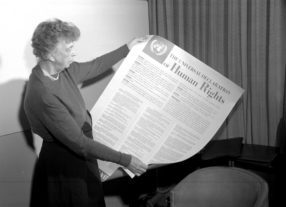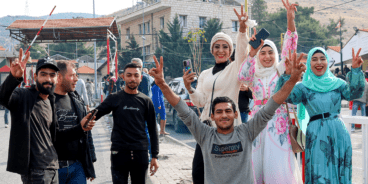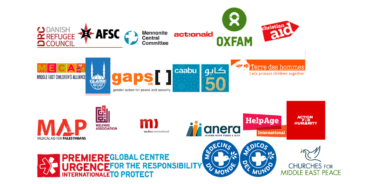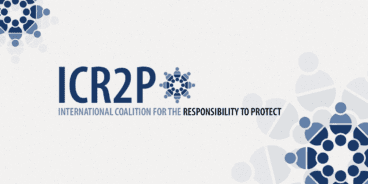
Remarks delivered at UN Security Council Arria Formula Meeting on “Raising Effectiveness of Atrocity Crimes Prevention”
Remarks delivered by Dr. Simon Adams, Executive Director of the Global Centre for the Responsibility to Protect, on 10 December 2018 at UN Headquarters in New York.
Excellencies, ladies and gentlemen, I would like to thank the organizers of this timely meeting, the Permanent Missions of Belgium, Cote d’Ivoire, Germany, Kuwait, Peru and Poland. As we mark the seventieth anniversary of two of the United Nations’ most significant early political achievements – the adoption of the Genocide Convention and the Universal Declaration of Human Rights – I welcome the leadership of current and incoming Council members in holding the first Arria formula meeting on atrocity prevention in three years.
On 16 April 2014, twenty years after the genocide in Rwanda, members of the UN Security Council unanimously adopted Resolution 2150, calling upon member states to recommit to the fight against genocide and other mass atrocity crimes. During the Council meeting at which the resolution was adopted, New Zealand’s former Ambassador to the UN, Colin Keating, detailed how in 1994 the threat of the veto had been brandished to forestall action in response to the genocide against the Tutsi. Ambassador Keating, who had served as President of the Security Council during April 1994, expressed optimism that the development of the principle of the Responsibility to Protect (R2P) and the adoption of the resolution indicated that lessons had been learned.
Almost five years on, such optimism among human rights advocates is scarce as the international community has been confronted by seemingly intractable civil wars in Syria and Yemen; endemic violence and instability in the Democratic Republic of the Congo, South Sudan and Central African Republic; and deteriorating and deadly human rights situations in Burundi, Cameroon, Venezuela and elsewhere.
The UN Security Council has often failed to respond in a timely and decisive manner to these challenges. For example, twelve vetoes have obstructed coordinated international action regarding Syria’s civil war, and last year the Council failed to adequately respond to a genocidal campaign perpetrated by Myanmar’s security forces against the ethnic Rohingya. It is also unconscionable that the Security Council has not passed a substantive resolution on Yemen in over three years despite the fact that because of ongoing armed conflict and war crimes, 14 million people are now facing the threat of famine.
Twenty years from now it is unlikely that the history books will commend the Security Council for avoiding some political discussions regarding how to protect vulnerable populations from atrocities in order to elude controversy. Rather, history will record that while over 700,000 Rohingya were being systematically displaced from Myanmar over a four-month period during 2017 – with hundreds of villages burnt down and thousands of civilians killed – the Security Council failed to pass a single resolution to halt these atrocities or to hold the perpetrators accountable.
If we want to avoid endlessly repeating the failures of the past, human rights and humanitarian principles cannot continue to be selectively applied or diluted and discarded. Norms, laws and institutions remain essential. And there are a number of concrete actions Security Council members can take to ensure that they are upheld.
For example, Arria formula meetings such as today’s are an excellent innovation. But I urge Council members to also support regular, formal open debates within the Security Council on R2P, the threat of atrocity crimes, and the Council’s role in their prevention.
Council members should also invite regular briefings from the UN Special Advisers on the Prevention of Genocide and on the Responsibility to Protect regarding early warning of situations where populations are at risk of genocide, war crimes, and crimes against humanity.
I also encourage member states to strengthen links between the Human Rights Council and the Security Council for early warning and early action, and emphasize that, in the words of the Secretary-General, “human rights and national sovereignty go hand in hand. There is no contradiction.”
The Council should also conduct visits to countries where populations are at risk and should delegate Ambassadors to conduct Fact-Finding Missions in order to report back to the Council on what can and should be done.
Finally, all members of the Council should support the ACT Group’s Code of Conduct regarding Security Council action against genocide, war crimes or crimes against humanity, which has been endorsed by 117 countries. These countries have pledged not to vote against any credible draft resolution aimed at preventing or halting atrocities. As of January, ten of the Council’s members will be signatories to the code – I urge the remaining five, including the elected members South Africa and Equatorial Guinea, to sign on as soon as possible.
The conviction of “never again,” born out of the catastrophe of World War II, was not intended to be a silent prayer – rather, it was a demand by the survivors of the Holocaust that we, the subsequent generations, actively prevent mass atrocities wherever or whenever they may be threatened.
Those to whom mass atrocities are not just words, but real acts that pose a direct threat to them, their families, and their communities, are looking to this Council. Some of you may be shy of the words, but those facing death need you to defend human rights and uphold your responsibility to protect. And they need you to do so without exception, and with consistency and courage.
Thank you.
Read Next

Related Publications


